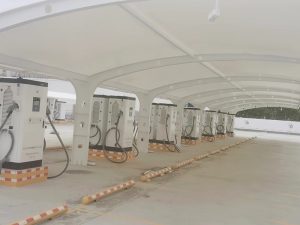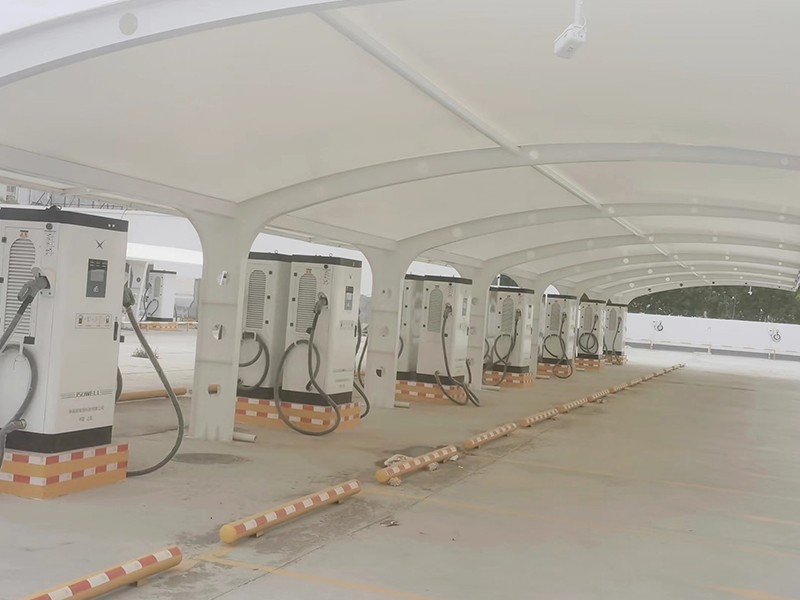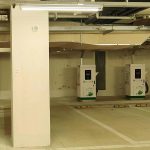Installing a home electric vehicle (EV) charger is a significant investment for many EV owners, but the cost can vary widely depending on several factors. On average, the cost to install a Level 2 EV charger ranges from $500 to $3,000, with the national average being approximately $959. However, costs can be higher in specific regions, such as Oregon and Washington, where the average installation cost is around $2,500. Below is a comprehensive guide to understanding EV charger installation costs, key factors affecting the price, and tips for saving money.

Key Points
-
Cost Range: Level 1 chargers typically require no additional installation costs if a suitable outlet exists, while Level 2 charger installations cost around $1,600 to $3,000.
-
Influencing Factors: Charger type (Level 1 or Level 2), connection method (plug-in or hardwired), electrical upgrades, installation location (indoor or outdoor), brand, and permit fees all impact the total cost.
-
Savings Opportunities: Local and federal rebates or tax credits can significantly reduce costs, such as up to $1,000 for Level 2 chargers in some regions or a $4,200 rebate from Southern California Edison.
-
Regional Variations: Costs vary by region; for example, Oregon and Washington average $2,500, while national estimates range from $546 to $1,374.
Why Understand Installation Costs?
As electric vehicles become more popular, home chargers offer convenience and cost-effective charging. However, installation costs can vary based on home conditions and charging needs. Understanding these costs helps you make informed decisions to ensure your investment is worthwhile.
Factors Affecting Installation Costs
Here are the primary factors influencing the cost of installing an EV charger:
1. Charger Type
-
Level 1 Charger: Uses a standard 120-volt household outlet, often included with an EV purchase. Charging is slow (2-5 miles of range per hour), taking 20-50 hours for a full charge. If a suitable outlet exists, no installation cost is needed. Upgrading circuits or outlets may cost $400 or more (JD Power).
-
Level 2 Charger: Requires a 240-volt outlet, similar to those used for ovens or dryers. It charges faster (10-40 miles per hour), typically taking 4-10 hours for a full charge. The charger costs $400-$800, with installation fees of $1,200-$2,200 (Prairie Electric).
-
Level 3 Charger: Known as DC fast chargers, these are primarily for commercial use, costing $12,000-$35,000 for equipment and up to $50,000 for installation, making them unsuitable for homes (Bob Vila).
2. Connection Type
-
Plug-in Chargers: Portable and plugged into a 240-volt outlet, suitable for flexible use. Installing a new 240-volt outlet costs $250-$800.
-
Hardwired Chargers: Fixed installations connected directly to the electrical system, ideal for long-term use, especially outdoors (weatherproof). Installation costs range from $850-$1,800 (Prairie Electric).
3. Electrical Upgrades
Older homes may require electrical upgrades to support a Level 2 charger, such as:
-
New Wiring or Outlets: $6-$12 per linear foot.
-
Subpanel or Main Panel Upgrade: $650-$2,000.
-
Breaker Box Replacement: $1,500-$4,000 (Bob Vila).
4. Installation Location
-
Indoor (Garage): Simpler and cheaper, costing $800-$1,500, as no weatherproofing is needed.
-
Outdoor: Requires waterproofing, increasing complexity and cost to $800-$2,500 (Prairie Electric).
5. Charger Brand
Different brands offer varying prices and features. Below is a table of common brands and their price ranges:
|
Brand |
Price Range (USD) |
Features |
|---|---|---|
|
Tesla |
$450-$580 |
Designed for Tesla or universal EVs, durable |
|
ChargePoint |
$600-$1,500 |
WiFi connectivity, smart features |
|
JuiceBox |
$600-$1,400 |
High power, compatible with multiple models |
|
Ford |
$799-$1,310 |
Optimized for Ford EVs |
|
Bosch |
$1,100-$1,600 |
Reliable, suitable for various environments |
|
Siemens |
$1,200-$1,400 |
High performance, industrial design |
|
Webasto |
$1,000-$1,300 |
Compact, ideal for home use |
Data Source: Bob Vila.
6. Permits and Inspection Fees
Local regulations may require electrical permits and inspections, costing $50-$300:
-
Permit Application: $40-$60
-
Electrical Permit: $100-$200
-
Additional Handling Fees: $20-$40 (Bob Vila).
7. Rebates and Incentives
Many regions offer subsidies or tax credits to encourage EV charger installation:
-
Local Utility Companies: Some regions provide up to $1,000 for Level 2 chargers (Prairie Electric).
-
Federal Tax Credits: Up to 30% of installation costs (IRS).
-
State and Municipal Incentives: For example, Southern California Edison offers up to $4,200 in rebates.
Average Installation Costs
The following table summarizes the average cost ranges for EV charger installation:
|
Charger Type |
Cost Range (USD) |
Notes |
|---|---|---|
|
Level 1 |
$0-$400+ |
No cost if using existing outlet |
|
Level 2 |
$1,600-$3,000 |
Includes charger and installation |
|
Level 3 |
$12,000-$50,000+ |
Primarily for commercial use |
Regional Variations:
-
Oregon and Washington: Average $2,500 for Level 2 (Prairie Electric).
-
National Average: $546-$1,374, with an average of $959 (Bob Vila).
-
Qmerit Estimate: $799-$1,999, including a $149 deposit (Qmerit).
Tips to Save on Installation Costs
Here are practical suggestions to reduce EV charger installation costs:
-
Explore Rebates and Incentives: Check local, state, or federal subsidies before purchasing. For example, Southern California Edison offers a $4,200 rebate, and federal tax credits cover 30% of costs (IRS).
-
Choose the Right Charger: Select a charger based on your charging needs. For short daily commutes, a basic Level 2 charger may suffice, avoiding costly high-end models.
-
Assess Electrical System: Have an electrician evaluate your home’s electrical system before purchasing to identify any needed upgrades and avoid surprise costs.
-
Consider DIY for Simple Installations: For Level 1 chargers or plug-in Level 2 chargers, DIY installation may be possible if you’re experienced and local regulations allow. However, professional installation is recommended for safety, especially for hardwired setups or upgrades.
-
Compare Brands and Quotes: Charger prices vary by brand, and multiple electrician quotes can help you find the most cost-effective option.
Conclusion
Installing an EV charger at home is a valuable investment that enhances the convenience and affordability of EV ownership. By understanding the factors affecting costs—such as charger type, connection method, electrical upgrades, installation location, brand, permits, and available rebates—you can better plan your budget and maximize your investment. While the national average cost for a Level 2 charger provides a reference range ($1,600-$3,000), actual costs depend on your region and specific circumstances.
Contact a licensed electrician for a site assessment to get an accurate quote. Additionally, explore local and federal incentive programs, such as Southern California Edison’s rebate or IRS tax credits, to maximize savings.


